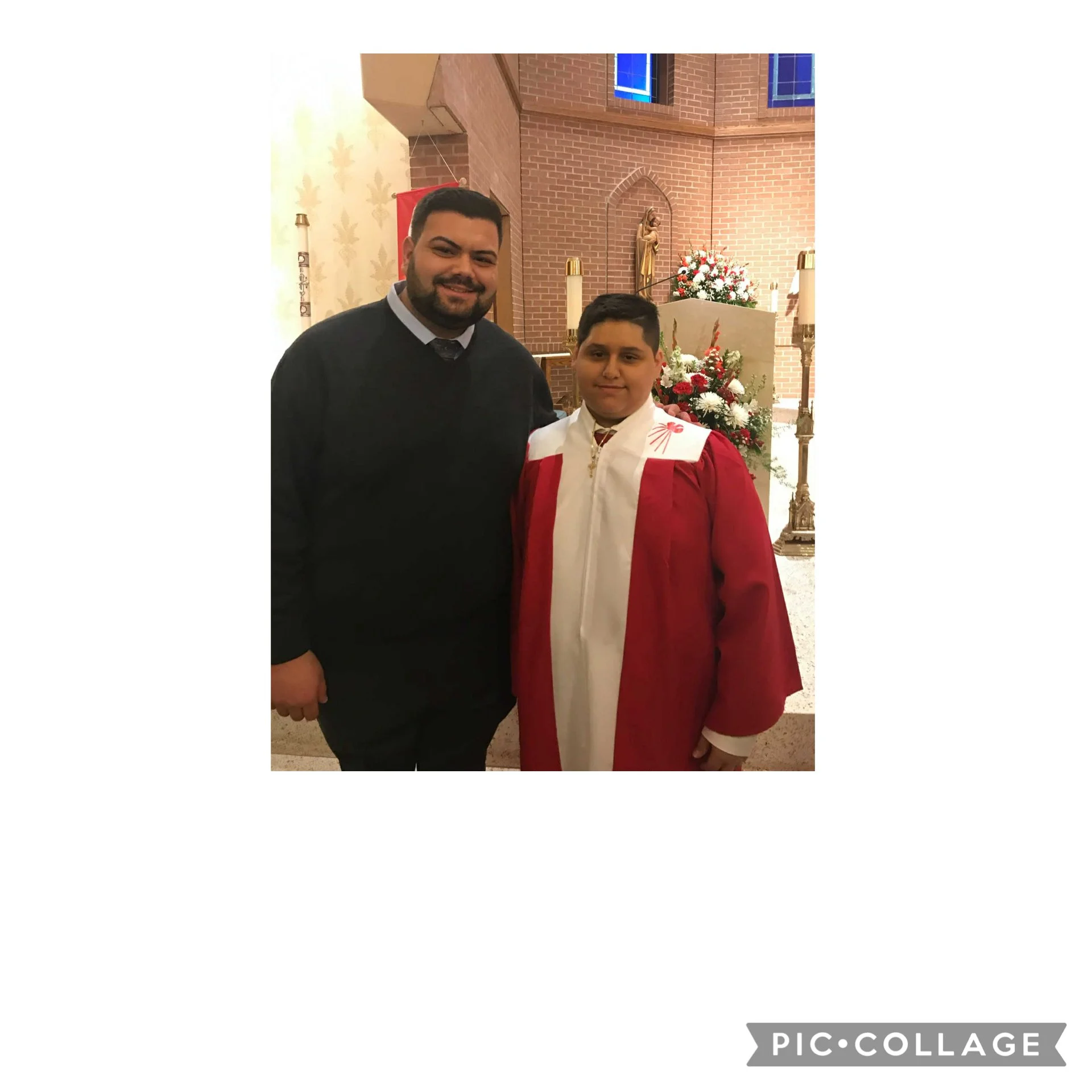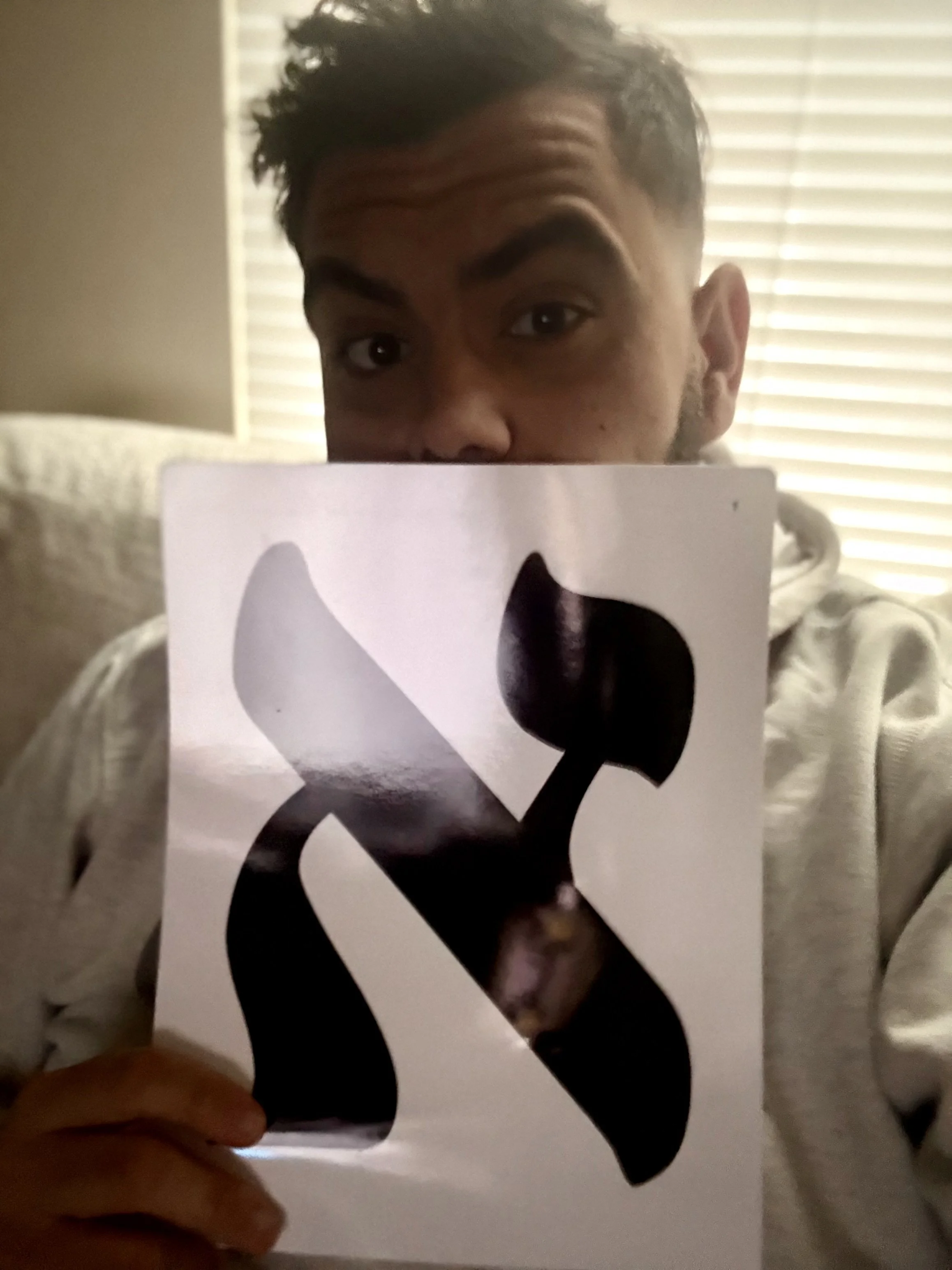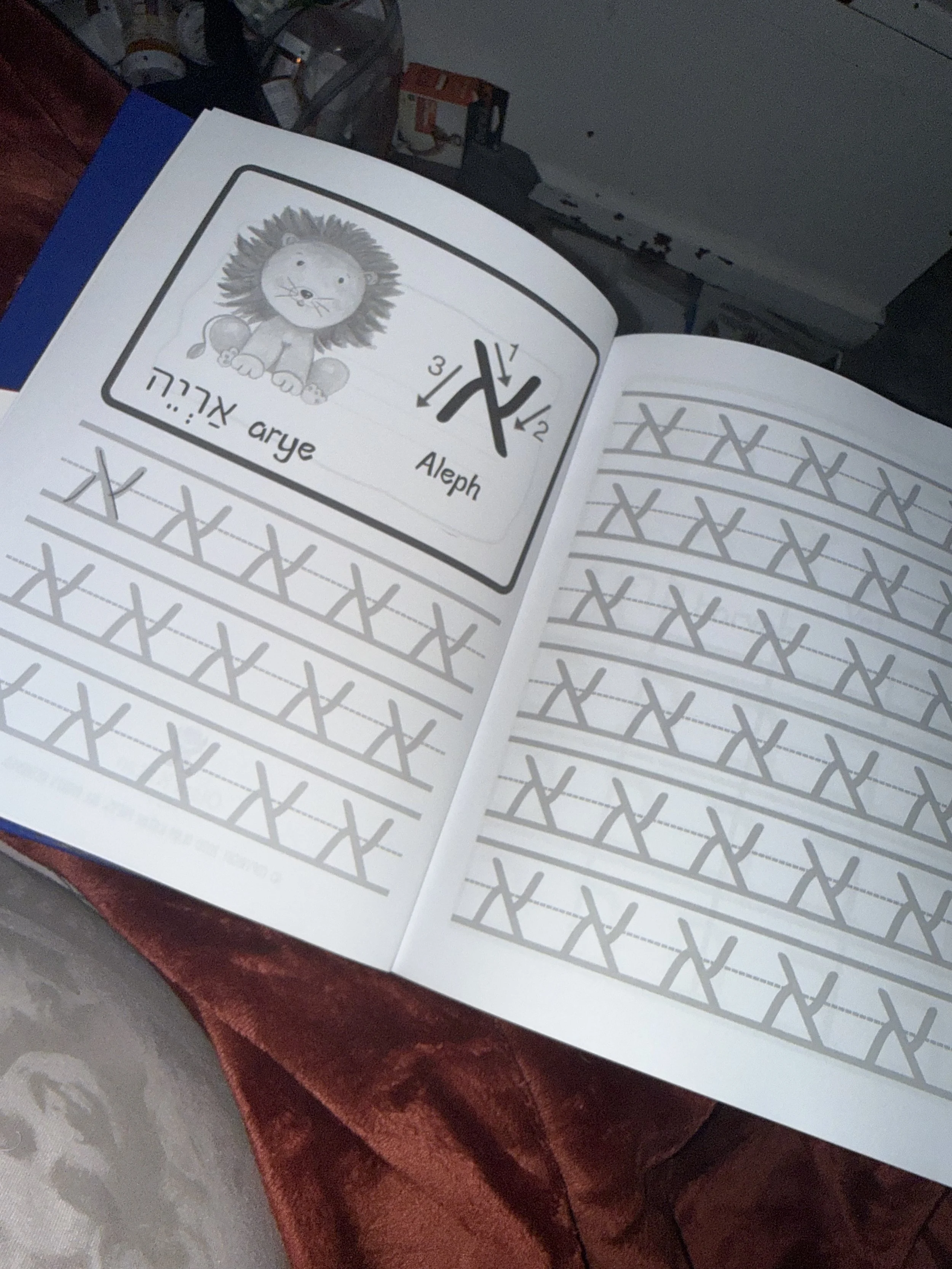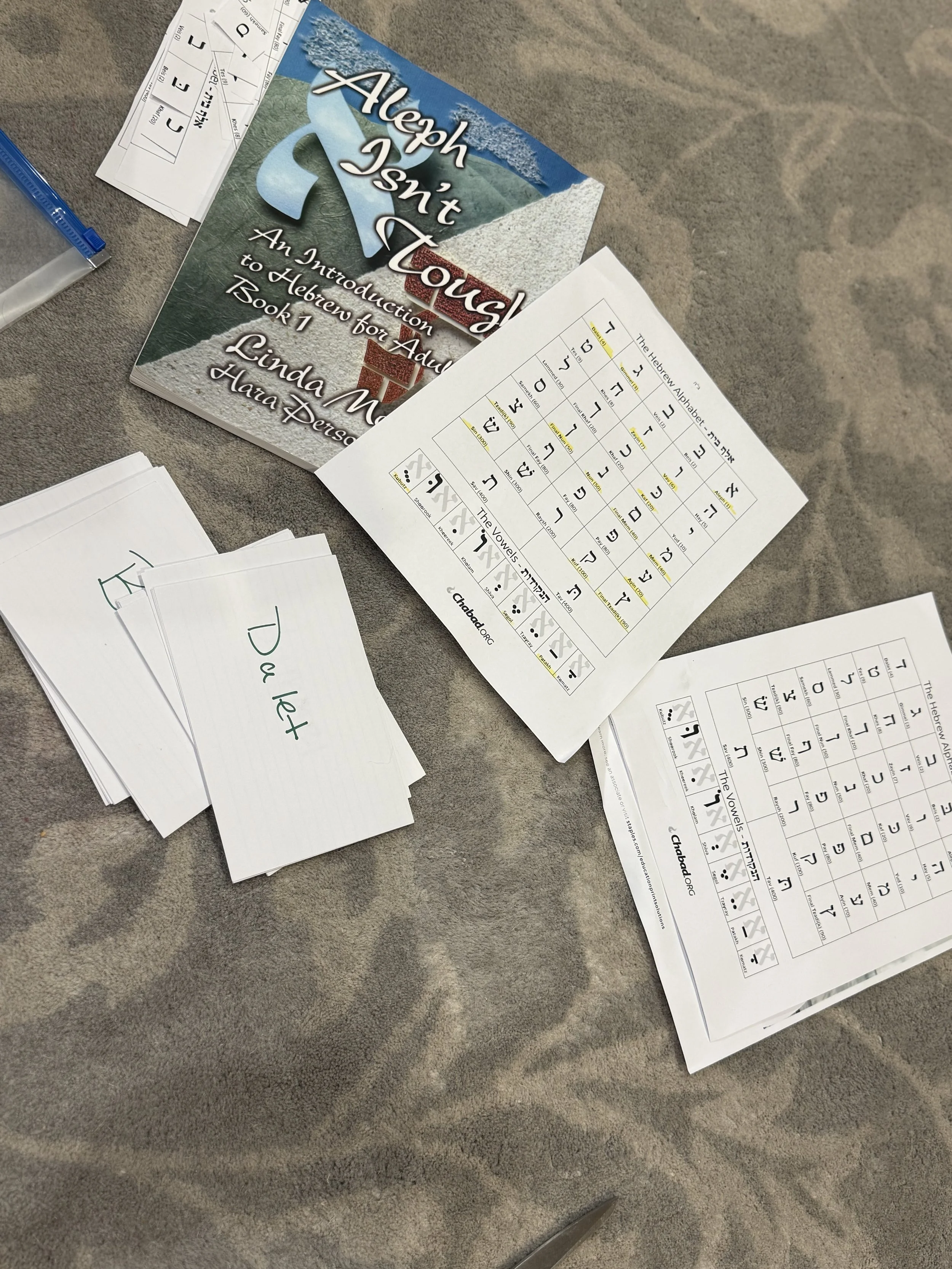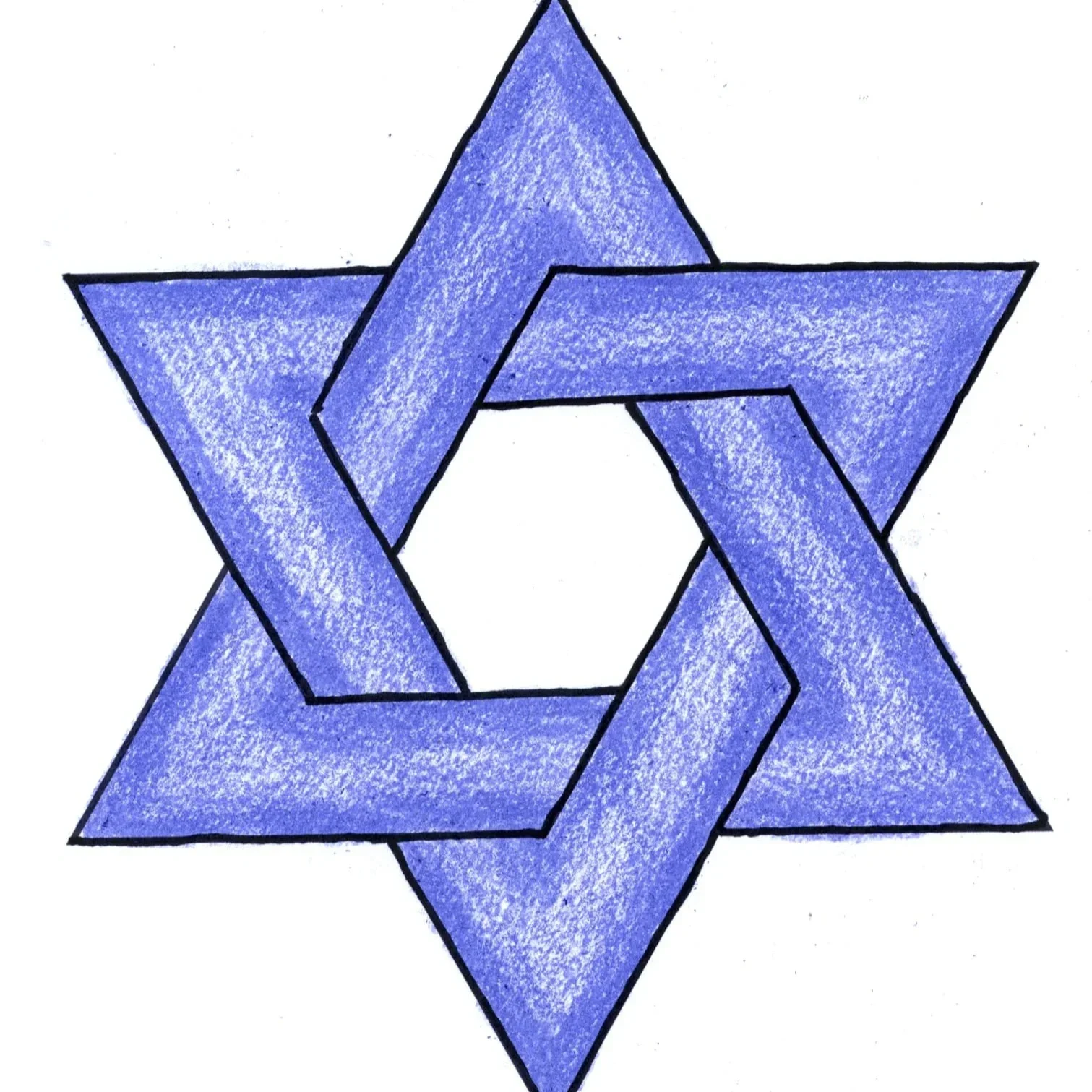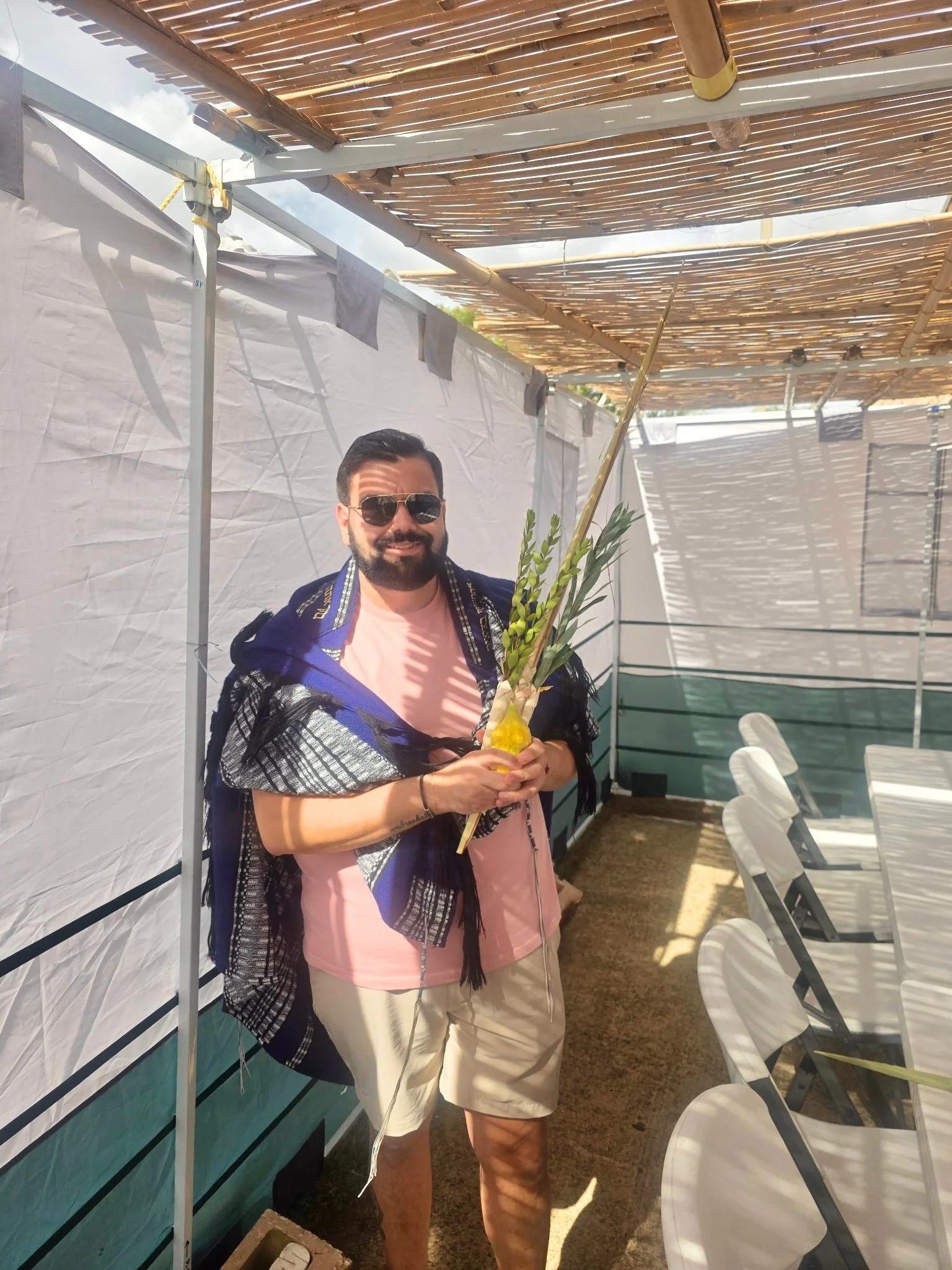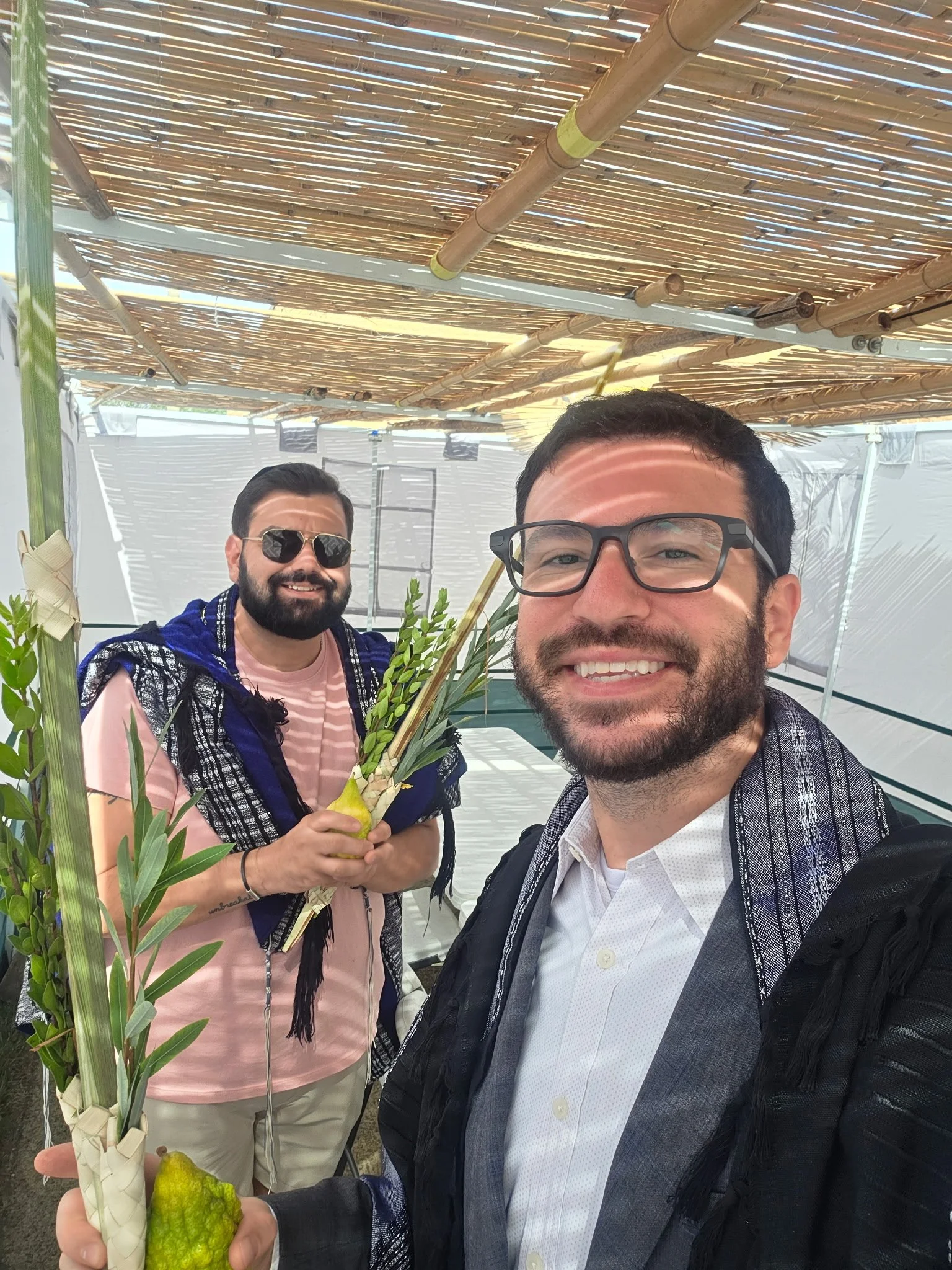A Testimony That Touched My Heart
Every so often, something happens that reminds me exactly why I share my story so openly. Recently, I received a testimony from a parent whose family was once part of my program when I served as Director of Religious Education.
Her words reminded me of a time in my life when I was still learning to embrace who I truly was. She saw beyond titles, expectations, and appearances—she saw me. She recognized how deeply I cared for the families I worked with, how much purpose I found in serving others, and how my heart was always in the right place, even during times when I was struggling to find my own peace.
This message meant more than she’ll ever know. It reaffirmed that our impact on others lives far beyond the roles we hold—it’s found in the kindness, compassion, and authenticity we share.
I’m sharing this testimony here not just because it touched me, but because it beautifully reflects what my blog is truly about: living authentically, finding faith, and discovering the strength to no longer hide who we are.
I had to take a moment and write to you, to tell you how proud of you I am with fighting your way through this thing called life, and sharing your feelings.
I remember you as a young boy still in high school, helping with CCD while Sister Marcia was still there. Then I thought you blossomed into this young man of faith and found where you belong (not everyone knows where they belong). You were so kind to always help, and had a smile every time I saw you. I remember when my youngest made his confirmation in 2019 I had to look for you and get a picture with him, because I didn’t know if we would ever cross paths again. But it wasn’t because of your faith that made me want to know you, it was because of your kindness, your sweet demeanor. I wish I had known the troubles you were facing at home, the church and within yourself. But that was unfortunately a path of life you needed to take to find yourself.
When I first saw you were in a relationship and posted it online and you were then engaged, I said well it’s about time. Not about time you said you were gay, but because you found someone to share your life with. It’s a different kind of happiness.
Im sorry the people you share blood with aren’t the ones who held your hand and said life is messed up and we will walk with you. I’m sorry the church made you feel like you don’t belong.
However, I am proud of your friends who showed you what love really is. How your temple accepts you fully. This is family, this is your village.
I am so proud of the man you are and striving to be. You just want to live life happy and peacefully. Your friends and your temple will continue to walk with you, they will celebrate you, they will be honest with you, and most of all they will continue to love you.
Keep going, stay loving, and most of all be you, all of you.
I am happy and proud to know you.
Hirschberg Family
From Crucifix to Kippah: My Journey of Faith and Identity
By Frank Marchese
For as long as I can remember, I wore a crucifix around my neck. I received it at my Confirmation — a gift that symbolized faith, belonging, and everything I was raised to believe in. It became a part of me — something I rarely took off, even when I wasn’t sure what I believed anymore. That small piece of metal wasn’t just jewelry; it represented my upbringing, my family’s expectations, and a version of myself that tried so hard to fit in.
But over time, that crucifix began to feel heavier. Not physically — but spiritually and emotionally. As I grew older and began to wrestle with questions about faith, identity, and truth, I realized that the crucifix I once wore with pride had become a reminder of the life I was trying to leave behind — a life where I felt like I had to hide who I really was.
Removing it wasn’t a spontaneous act. It took years of internal conflict, moments of guilt, and nights of reflection. When I finally unclasped it from my neck, I wasn’t just taking off a symbol — I was shedding years of pain, fear, and silence. It was the moment I stopped pretending and started embracing who I truly am.
And today, I wear a kippah.
That small piece of fabric, light as air, carries more meaning than I could have ever imagined. It reminds me that my faith is no longer rooted in fear or expectation, but in truth and purpose. When I put it on each morning, I feel grounded. Seen. Connected — not only to my Creator but to generations of Jews who came before me.
At first, I was hesitant to wear it publicly. Part of me worried what others might think or say — especially at work. Unfortunately, those fears weren’t unfounded. I faced moments of discrimination and uncomfortable questions. There were times I felt singled out or judged simply for being who I am. But instead of hiding again, I chose to stand firm. I fought for my right to practice my religion and to be respected for it.
That experience changed me. It reminded me that faith isn’t just about what we believe in — it’s about how we live it, even when it’s hard. Each time I chose to keep my kippah on, I was choosing courage over comfort, authenticity over fear, and pride over shame.
The crucifix I wore was about conformity. The kippah I wear now is about authenticity.
It’s more than a symbol of religion — it’s a declaration of who I’ve become. It tells the world that I’m proud of my Jewish identity, proud of the man I’ve become, and grateful for the path that led me here.
This journey wasn’t about rejecting my past — it was about finding where my soul truly belonged. Every scar, every question, every painful moment brought me to this place of peace. And now, as I look in the mirror and see my kippah reflected back, I don’t just see a new faith. I see freedom.
Because for the first time in my life, what’s around my neck — or on my head — finally matches what’s in my heart.
Reconciling Love and Loss: Being Gay in a Family That Couldn’t Understand”
By Frank Marchese
There’s a kind of silence that echoes louder than words—a silence that follows after you’ve come out to the people you thought would love you no matter what. For years, I carried that silence with me. It became a shadow that followed me through birthdays, holidays, and milestones that I wished my family could have shared in.
When I came out, I hoped that honesty would bring healing. Instead, it brought distance. My family, rooted in traditions and beliefs that didn’t make room for someone like me, couldn’t see that my love was as pure, as real, and as sacred as anyone else’s. Their inability to understand left a wound that time alone couldn’t mend.
I think the moment I truly realized I wasn’t accepted was at my own sister’s birthday. What should have been a celebration felt like walking into a room where I no longer belonged. The air was thick with tension and quiet judgment. I tried to mask that discomfort the only way I knew how at the time—by numbing it. I took one too many Xanax and mixed it with wine, trying to drown the feeling of being unwanted. But pain always finds its way to the surface.
At one point, my uncle put his hand on my shoulder, and when I didn’t respond the way he wanted, he grabbed me harder. In that moment, something inside me snapped. I turned around and swung at him—not because I wanted to hurt him physically, but because I was hurting so deeply inside. It was years of rejection, silence, and feeling unloved boiling over. That moment was when everything in my family truly broke apart. The divide that had been growing quietly for years finally became impossible to ignore.
After that, home didn’t feel like home anymore. The air grew heavy with unspoken words, awkward glances, and quiet disapproval. Nights became unbearable, so I began sleeping in my office inside the Religious Education building at the church where I worked. I told myself it was temporary—that things would get better—but each night alone under the dim light of my desk lamp reminded me how much had changed.
My friends eventually found out what was happening. Without judgment, they opened their doors, their couches, and their hearts. Some nights I’d stay at one friend’s house, other nights at another’s—carrying my life in a backpack, holding on to pieces of hope that someone still cared.
My breaking point came when one of those friends—who would later become my best friend—insisted that I stop bouncing from place to place. She told me, “You deserve more than surviving. You deserve to live.” From that moment on, her home became mine. It was the first time in a long time I felt truly safe, seen, and loved for who I was.
But it wasn’t just safety that I found—I found family. My real family. My chosen family. In them, I discovered the love I had always longed for. I gained two new sisters—women who have stood by me through every storm—and through them, I gained a whole new generation of love: nieces and nephews who call me “Guncle Frank.” Every time one of them runs up to hug me or calls my name with excitement, I’m reminded that family isn’t defined by blood; it’s defined by love. I cherish each of them as my own.
My chosen family made every birthday, every holiday, and every celebration feel like I was one of their own. I was included, valued, and surrounded by people who wanted me there—not out of obligation, but out of genuine love. For the first time in years, I felt like I belonged. I had purpose again. I wasn’t the outsider watching joy happen around me—I was part of it.
Through my journey of conversion to Judaism, I’ve come to understand that family isn’t defined by who shares your last name, but by who shows up when the world grows quiet. My congregation became my anchor. My Rabbi became my teacher, my guide, and—most importantly—someone who reminded me that divine love doesn’t exclude.
Reconciling love and loss means accepting that both can exist side by side. I still grieve the family I wish I had, but I also celebrate the one I’ve found. I no longer chase the approval of those who can’t understand me; instead, I honor the truth that my life, my faith, and my love are all reflections of something holy.
To anyone who has faced the pain of being misunderstood by those who raised you—know this: your story doesn’t end with rejection. It begins with resilience. You are not alone, and your love is worthy.
Losing Her, Finding Strength: A Tribute to My Grandmother
By: Frank Marchese | Becoming Ezra Shmuel
When my cousin first called to tell me that my grandmother’s time was nearing an end, my heart sank. I thought I had prepared myself for this moment, but no amount of time could soften the blow of hearing those words. She was the woman who raised me with love, warmth, and resilience — and yet, for almost nine years, our relationship had been fractured.
Walking into that hospital room, I froze. The woman lying there didn’t look like the grandmother I remembered. Time, illness, and distance had changed her appearance, but not her spirit. When our eyes met, everything else faded away — the years apart, the words unspoken, the pain caused by others. It was like no time had passed at all. She smiled weakly, and in that moment, we simply picked up where we left off.
We talked quietly, holding hands. She told me she was proud of me, and I told her how much I loved her — words I’d waited nearly a decade to say to her face. Deep down, I truly believe she waited for me. She needed to see me one last time before she could let go, to have that peace in her heart before closing her eyes for the final time.
The wedge between us had been years in the making. My uncle — her son — had a hand in that division. My being gay was the spark that ignited the fire between our family. He couldn’t accept who I was, and over time, his influence created distance between me and my grandparents. That pain ran deep. I spent years questioning if I had done something wrong, if simply being myself was too much to bear for the people who once called me their pride and joy.
Accepting what had happened wasn’t easy. Watching her fade away felt like losing her twice — once to the family conflict, and again to time. But I knew I had to be there for her final goodbye.
At the funeral, I saw faces I hadn’t seen in years. There were awkward smiles, forced hugs, and unspoken tension hanging in the air. When my uncle stood up to give the eulogy, I braced myself. Hearing him say my name felt strange — almost hollow. Then came the stories, the half-truths, and the moments painted in ways that didn’t match reality.
There were times I wanted to stand up, to tell the truth about what really happened. About how he treated our grandparents, how he kept certain relationships at a distance, how his pride and control shaped years of silence. But I didn’t. I sat there quietly, holding it together, because I knew this wasn’t the time to reopen old wounds.
Instead, I reminded myself of what my grandmother taught me: that peace doesn’t come from proving others wrong — it comes from knowing your own truth.
As I stood by her urn, I whispered that truth to her. I told her how much I missed her. How I hoped she and Aunt Charlene were together again. How I prayed for them both every night. And how I believed — no, knew — she was proud of the man I’ve become, of the life I’ve built, and of the faith that has shaped me into who I am today.
That day, I walked away with tears in my eyes but strength in my heart. I may not have had the chance to fix everything in life, but I found closure in the love we shared in her final moments.
At the end of the day, I know what’s right and what’s wrong. I know the truth that lives in my heart. And because of that, I can put my head on the pillow tonight — at peace.
The Boy in the Pew Who Hid Behind a Smile
By: Frank Marchese | Becoming Ezra Shmuel
As I continue walking this path of faith and self-discovery, I often find myself looking back—not with regret, but with understanding. My journey toward Judaism didn’t begin in a synagogue. It began in a pew, inside the Catholic Church I once called home.
For years, the Church was my world. It shaped how I saw God, how I served others, and even how I viewed myself. I wasn’t just a parishioner—I was part of the heartbeat of that community. I served as Director of Religious Education, Parish Manager, and sat on both the Finance Council and Parish Council. I poured my heart into that parish. I wanted to make it a place where everyone felt welcome, connected, and loved.
But the truth was, I never felt that way myself.
Behind every warm greeting, every faith lesson, and every church event I organized, there was a secret I carried with quiet fear—I was gay. And I believed that if anyone ever found out, everything I had built would come crashing down.
I loved my pastor and deacon dearly. We worked closely together and shared a bond that felt like family. They were mentors, friends, and people I trusted. But even with them, something inside me always twisted. There was a part of me that couldn’t rest. I had this gut feeling that they knew—that they saw the truth in me—but didn’t want to acknowledge it. And maybe I didn’t either. So we all just kept pretending, wrapped in silence that neither of us dared to break.
Every day was a balancing act—serving the Church while hiding from myself. I taught children about God’s love and acceptance, yet I couldn’t believe that same love applied to me. I prayed constantly, asking God to “fix” me, to take away the feelings that made me feel unworthy. But the more I prayed, the more I felt unseen.
The longer I stayed, the heavier the mask became. Smiling through sermons that condemned people like me. Listening to jokes that made my heart ache. Pretending not to notice when parishioners looked at me just a little too long, as if they already knew. It was like living in a house I helped build but could never truly call home.
And then one quiet Sunday, after everyone had gone, I sat in an empty pew and finally admitted the truth to myself—I couldn’t keep hiding. I had spent so long trying to fit into a version of faith that required me to disappear. I realized that if God truly made me, then He made me on purpose. And that meant I deserved to live honestly.
Leaving the Catholic Church wasn’t an act of anger or rebellion. It was an act of survival. It was me choosing to finally breathe—to stop hiding and start healing.
Now, as I stand within my temple community, surrounded by people who see all of me, I feel something sacred I never felt before: peace. My faith is no longer tied to fear or approval. It’s rooted in authenticity, truth, and love—the kind I believe God always intended.
To the boy I once was—the one who hid behind a smile—I want to say this: you were never broken. You were never wrong. You were just waiting for the right place, and the right faith, to remind you that God already loved you exactly as you are.
Learning Hebrew
אתה יכול לעשות זאת!: (Ata yachol la'asot zot!) - You can do it!
אל תוותר!: (Al tevater!) - Don't give up!
Aleph to Amen: My Beginning Journey Learning Hebrew
By: Frank Marchese | Becoming Ezra Shmuel
When I first sat down with my Hebrew workbook and a cup of coffee, I felt both excitement and intimidation. The letters looked like beautiful little mysteries — curved and ancient, filled with meaning I couldn’t yet grasp. It was humbling to realize that I was stepping into a language that has carried prayers, stories, and identity for thousands of years.
Starting From the Aleph-Bet
Like every beginner, I started with the Aleph-Bet. I practiced each letter over and over — tracing, sounding out, stumbling, and then smiling when it finally clicked. There was something so grounding about those first steps. Every letter felt like a doorway, every sound a heartbeat of a living tradition.
I’ll be honest — there were moments when I mixed up my shin and sin, or forgot which way to read (right to left still trips me up sometimes). But instead of frustration, I’ve tried to approach it with joy. Because this isn’t just about learning a new language — it’s about connecting with the soul of Judaism itself.
Learning Through Prayer and Practice
One of the most powerful parts of my Hebrew journey has been recognizing words from the Siddur — the prayer book — during services. The first time I could follow along and recognize words like Shalom, Baruch, and Adonai, I felt a spark of pride and belonging.
Each Shabbat, I challenge myself to read a little more. Sometimes I only get through a line or two, but even that feels like progress. My rabbi always reminds me: “You’re not just learning Hebrew — you’re learning to listen to the rhythm of Jewish life.” And he’s right.
Finding Meaning in Every Word
Hebrew isn’t just a language; it’s a spiritual map. Every word is layered with history and holiness. The more I learn, the more I see how connected everything is — the letters, the sounds, the meanings. Even the way the letters are shaped tells a story about creation, connection, and divine breath.
Patience, Practice, and Purpose
Some days I study late at night, repeating each letter softly to myself, hoping it’ll stick. And it’s in those quiet moments that I realize how far I’ve already come — from confusion to curiosity, from reading transliterations to slowly forming real words.
Learning Hebrew is teaching me patience. It’s teaching me humility. And most of all, it’s teaching me that growth doesn’t have to be fast to be meaningful.
This is just the beginning, but I already feel a deeper connection to the prayers I say and the faith I live. Each letter I learn brings me one step closer — not just to fluency, but to home.
L’Shalom — to peace, to progress, and to the beauty of new beginnings.
My Personal Narrative
Welcome to my Journey
The first real conversation didn’t happen in a synagogue or a sacred space. It started quietly — almost accidentally — somewhere between exhaustion and curiosity. I had been searching for something, even if I didn’t know what it was. My days felt full, yet somehow hollow. I had built a career I was proud of, led teams, served customers, and created community within the walls of my CVS store — but something deeper was missing.
Then I was assigned to Deal.
When I first walked into the CVS in Deal, I thought it would be just another store, another challenge to take on. But the moment I started observing the people, I knew this place was different. There was something special about the community — an unspoken closeness, a rhythm of care that stretched far beyond the store aisles.
On a monthly basis, I’d review my reports like any store manager would — sales, traffic, year-over-year comparisons. But something new caught my eye. Month after month, customer traffic wasn’t just growing; it was soaring. The numbers were more than data — they were proof that connection mattered. I realized people weren’t just coming to CVS for medicine or groceries. They were coming because they trusted me, because I was one of them.
As I became more open about my Jewish identity, something beautiful started to unfold. Word began circulating throughout the Sephardic community — whispers that finally, CVS had a Jewish store manager. I started to notice more smiles, more people greeting me with warmth that went beyond the typical customer exchange.
It became almost comical — if I had a dime for every time someone asked me, “What’s your last name?” I could probably retire early. When I told them my name was Marchese, many would tilt their heads, curious, trying to place it. And when I shared that I was in the middle of my conversion to Judaism, their eyes would light up.
“You’re converting? That’s amazing! We’re so proud of you,” one woman said, clasping her hands together. Another man patted me on the shoulder and smiled, “Welcome, my brother. You’re one of us now.”
These weren’t just polite words — they were sincere blessings from people who barely knew me but already accepted me as their own. That kind of kindness is rare. And before long, I had earned myself a nickname that made me laugh every time I heard it: “Frank with the Yarmulke.”
It spread fast — customers, delivery drivers, even regulars from nearby shops would use it. But the nickname wasn’t teasing; it was affectionate. It meant I was seen. I wasn’t hiding anymore. I was part of the fabric of this community — visible, proud, and connected.
Day after day, I met people who cared deeply about my journey. “How are your studies going, Frank?” someone would ask while picking up their prescription. Another might say, “You need anything for Shabbat? I can grab something from the market.” Their care wasn’t performative — it was genuine.
One man, Moshe, became more than a regular customer — he became a friend. He took a real interest in my conversion, offering guidance, encouragement, and insight. Even now, we still talk often. He reminds me how far I’ve come and how faith isn’t just learned — it’s lived.
But there’s one story from that time I’ll never forget.
It was a Friday afternoon, around 2:30 or 3 o’clock. The store was calm, the golden light from the windows spilling across the aisles. An elderly Jewish woman was shopping, moving slowly but gracefully through the store. When she reached the register, she looked up and saw my yarmulke.
She smiled and said softly, “I’m going to treat you like my own grandchild and tell you what I tell mine every Friday — make sure you’re home for Shabbos.”
Her voice trembled slightly, the way wisdom often does. I smiled back and told her, “I only work until three on Fridays, so I can go home, get ready, and head to shul.” Her eyes lit up. “Good,” she said. “Then you’re doing it right.”
That moment hit me hard — not because it was dramatic, but because it was simple and true. It captured everything I loved about this community: their care, their devotion, their joy in sharing faith with others.
Within just a few months of being in Deal, everything I saw back in February — that sense of belonging, that heartbeat of faith — became my reality. The community didn’t just accept me; they inspired me. They showed me that Judaism isn’t just practiced — it’s lived, breathed, and shared.
But it wasn’t just Deal that made my decision. It was also how the Reform Jewish community embraced me — fully and without conditions.
For the first time in my life, I felt seen as a gay man and accepted for exactly who I was. There were no whispers, no shame, no rules about what love was supposed to look like. I didn’t have to hide anymore.
That was something I could never say about my time in the Catholic Church. I had spent years trying to balance my faith with who I was — always afraid of being found out, always pretending to be someone I wasn’t. Confession was torture; I’d stand in line rehearsing my words, my palms sweating, terrified of saying out loud that I was attracted to men. I’d lower my voice, hoping the pastor wouldn’t recognize it was me. I lived in a constant state of fear and guilt.
The moment that finally broke me came one ordinary afternoon. I had been working at the church office and forgot to take off my engagement ring. I was in love then — hopeful, open-hearted, proud of who I was becoming. But pride wasn’t safe there.
I remember hearing footsteps from upstairs — my pastor coming down. My administrator leaned in, her eyes wide, and whispered urgently, “Frank, your ring — take it off!”
I tried. My fingers were swollen, and it wouldn’t budge. So I did the only thing I could: I sat on my hand to hide it. My heart was pounding, my stomach tight. That was the moment I realized I couldn’t do it anymore.
I’m done hiding.
That day, something inside me shifted. I decided that my faith should never make me feel ashamed of who I am. It should lift me, not shrink me.
And when I walked into Temple Etz Chaim for the first time, that’s exactly what happened. No one looked twice when I mentioned my fiancé. No one flinched when I said I was gay. They smiled. They welcomed me. They saw my heart before my label.
That acceptance — combined with the community I found in Deal — sealed my decision. Judaism wasn’t just the faith I was choosing; it was the home I had been longing for.
When I finally sat down with my rabbi, I told him everything — my story, my doubts, my fears, and the feeling that had been growing stronger every day.
He listened, then said gently, “Frank, that’s what makes Judaism beautiful. We don’t ask you to erase yourself. We ask you to be yourself.”
His words felt like oxygen. For the first time, faith didn’t feel like a closet. It felt like freedom.
From then on, every conversation — with my rabbi, my customers, my friends, and even here — became a step toward wholeness.
It’s the story of a man who stopped running from his truth and started walking toward it.
A story of belonging, of faith, and of finally finding home — not through grand revelations, but through the quiet, steady rhythm of community, courage, and conversation.
Sukkot
בָּרוּךְ אַתָּה, יְיָ אֱלֹהֵֽינוּ, מֶֽלֶךְ הָעוֹלָם,אֲשֶׁר קִדְּשָֽׁנוּ בְּמִצְוֹתָיו וְצִוָּֽנוּ לֵישֵׁב בַּסֻּכָּה
Baruch atah, Adonai Eloheinu, Melech haolam,
asher kid'shanu b'mitzvotav v'tzivanu leisheiv basukkah.
Blessed are You, Adonai our God, Sovereign of all: who hallows us with mitzvot, commanding us to dwell in the sukkah.
Sitting Under the Stars: My First Sukkot as a Converting Jew
By: Frank Marchese | Becoming Ezra Shmuel
This year, I had the joy of celebrating Sukkot for the very first time — and it was one of the most meaningful experiences of my conversion journey so far.
Building the Sukkah
When I first learned that Sukkot is the “Festival of Booths,” I didn’t fully grasp its power until I helped build our temple’s sukkah. Piece by piece, beam by beam, I watched our community come together to create something sacred from simple materials. It wasn’t just about building a temporary shelter — it was about building connection, faith, and gratitude.
Standing there with the hammer in my hand, I realized that this act wasn’t symbolic — it was spiritual labor. Every knot tied, every wall raised felt like I was helping to rebuild part of my own faith foundation.
Lunches in the Sukkah
Throughout the week, I had the privilege of sharing daily lunches with my rabbi inside the sukkah. Each afternoon, under the open sky, we sat together surrounded by greenery, sunlight, and the gentle sound of wind through the branches.
Our conversations were about faith, about life, about what it means to truly dwell in the moment. There was laughter, deep reflection, and quiet peace. Those lunches reminded me that holiness can be found in simple, human connection — in breaking bread, sharing stories, and being fully present.
Blessing the Lulav and Etrog
One of the most powerful moments came when my rabbi and I blessed the lulav and etrog together. Holding them in my hands for the first time felt profound — the weight of tradition, history, and meaning all at once.
As we recited the blessings, waving the lulav in all directions, I could feel the symbolism come alive: that God’s presence is everywhere — north, south, east, west, above, and below. It was humbling, grounding, and deeply spiritual.
A Season of Joy and Gratitude
Sukkot is known as z’man simchateinu — “the time of our joy” — and I finally understood why. It’s a celebration of gratitude, of impermanence, and of finding peace in the present moment.
As someone on the journey of becoming Jewish, this holiday reminded me that faith doesn’t just live in books or prayer services — it lives in community, in shared meals, in the act of building something together.
This Sukkot, I didn’t just build a sukkah — I built belonging.
Chag Sameach, friends — may your sukkah, like your heart, always be open to light, laughter, and love.
Rabbi Poulin & myself with the lulav and etrog
The High Holidays 2025
בָּרוּךְ אַתָּה יְהוָה אֱלֹהֵינוּ מֶלֶךְ הָעוֹלָם בּוֹרֵא פְּרִי הָעֵץ
Blessed are You, L-rd our G‑d, King of the universe, who creates the fruit of the tree.
My First High Holidays as a Converting Jew
By: Frank Marchese | Becoming Ezra Shmuel
This year’s High Holidays were unlike anything I’ve ever experienced before. For the first time, I wasn’t attending out of curiosity or obligation — I was showing up with intention, heart, and belonging. As someone on the path of conversion, these moments held deeper meaning than I could’ve ever imagined.
The Sound of the Shofar
When the shofar sounded, it wasn’t just a call to repentance — it was a call to awakening. Each blast seemed to shake something inside me, reminding me that change, forgiveness, and renewal are possible. I wasn’t watching from the sidelines anymore; I was part of something ancient, something sacred.
The Beauty of Community
What struck me most was how embraced I felt by my temple community. There was no questioning my presence or my journey — only warmth and inclusion. Sitting beside people who have celebrated these holidays for generations, I realized that faith isn’t about where you start, but how open you are to transformation.
As a gay man, finding a faith community that sees me completely — without judgment or fear — is nothing short of healing. The Reform community didn’t just welcome me; they celebrated me.
Reflection and Renewal
During the days between Rosh Hashanah and Yom Kippur, I spent time reflecting on my past year — not just the mistakes, but the growth. Judaism teaches us that teshuvah, or return, isn’t about guilt; it’s about realignment. It’s about turning back toward who we’re meant to be.
For me, that meant acknowledging how far I’ve come — from a place of hiding to a place of honesty, faith, and light.
The Moment That Stayed With Me
When we recited the Shema together, I closed my eyes and felt a deep peace settle over me. In that moment, I wasn’t “the convert” or “the newcomer.” I was simply part of Israel, standing among my people, connected through faith, love, and purpose.
Moving Forward
As I continue this journey of becoming — of learning, growing, and finding my Jewish identity — I’m reminded that holiness isn’t found in perfection. It’s found in showing up. In questioning. In belonging.
This High Holiday season reminded me that I’m no longer just learning Judaism — I’m living it.
L’Shanah Tovah — may this year bring renewal, courage, and peace to all who are finding their way home.

